NHS Wales: Record waiting times for 20th successive month
- Published
- comments

The longest waits included 53,595 people due for orthopaedic or trauma treatment
The numbers on waiting lists for non-urgent hospital treatment in Wales have hit record levels again for the 20th month in a row.
There were 683,331 on December's list although the latest monthly rise was the smallest since the pandemic began.
But people waiting the longest - more than nine months - rose by 2,664 to a record 244,331.
The Royal College of Surgeons said those waiting would be "disheartened and distressed" by the figures.
Meanwhile, A&E waiting times - for the four-hour target - and ambulance response times have both improved.

The number of patients waiting for non-urgent NHS hospital treatment in Wales has been growing since the pandemic began, although this month's rise of 0.2% was the lowest.
In the last month, the number waiting the longest - more than nine months- has risen by 2,664 to 244,331. This is the highest yet.
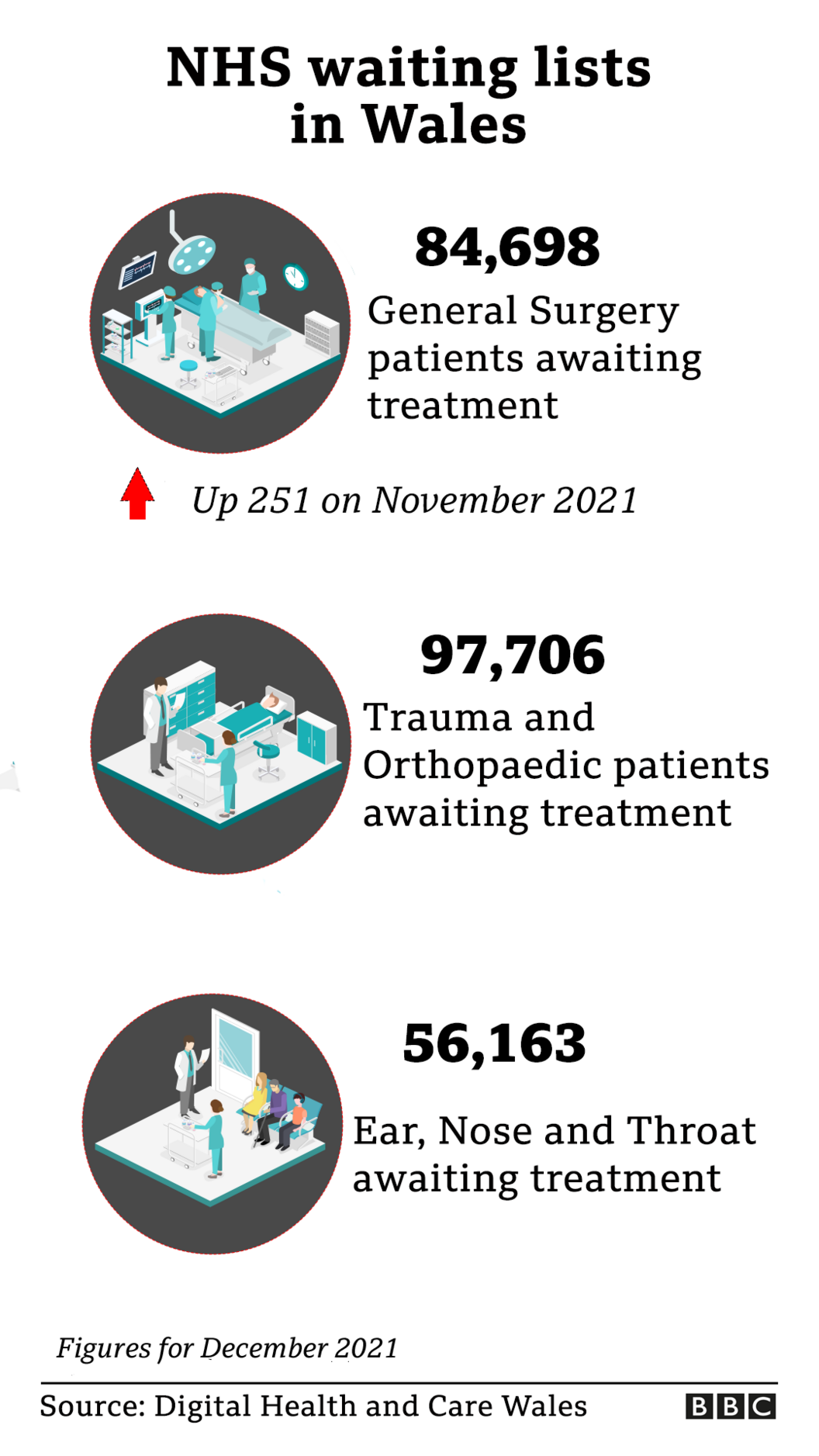
The figures for December 2021 show:
The overall waiting list for treatment now stands at 683,331. The waiting list figure has been climbing month-on-month since May 2020, although this was the smallest monthly rise.
The longest waits included 53,595 people due for orthopaedic or trauma treatment - a rise on the previous month.
Another 36,792 people have been waiting more than nine months for ophthalmology treatment - compared to 4,083 before the start of the pandemic
Numbers waiting for therapies had been increasing and were at their highest level since August 2017 but have fallen.
Some patients with complex needs will be waiting for different treatments on more than one list, so the figures will include these patients more than once.
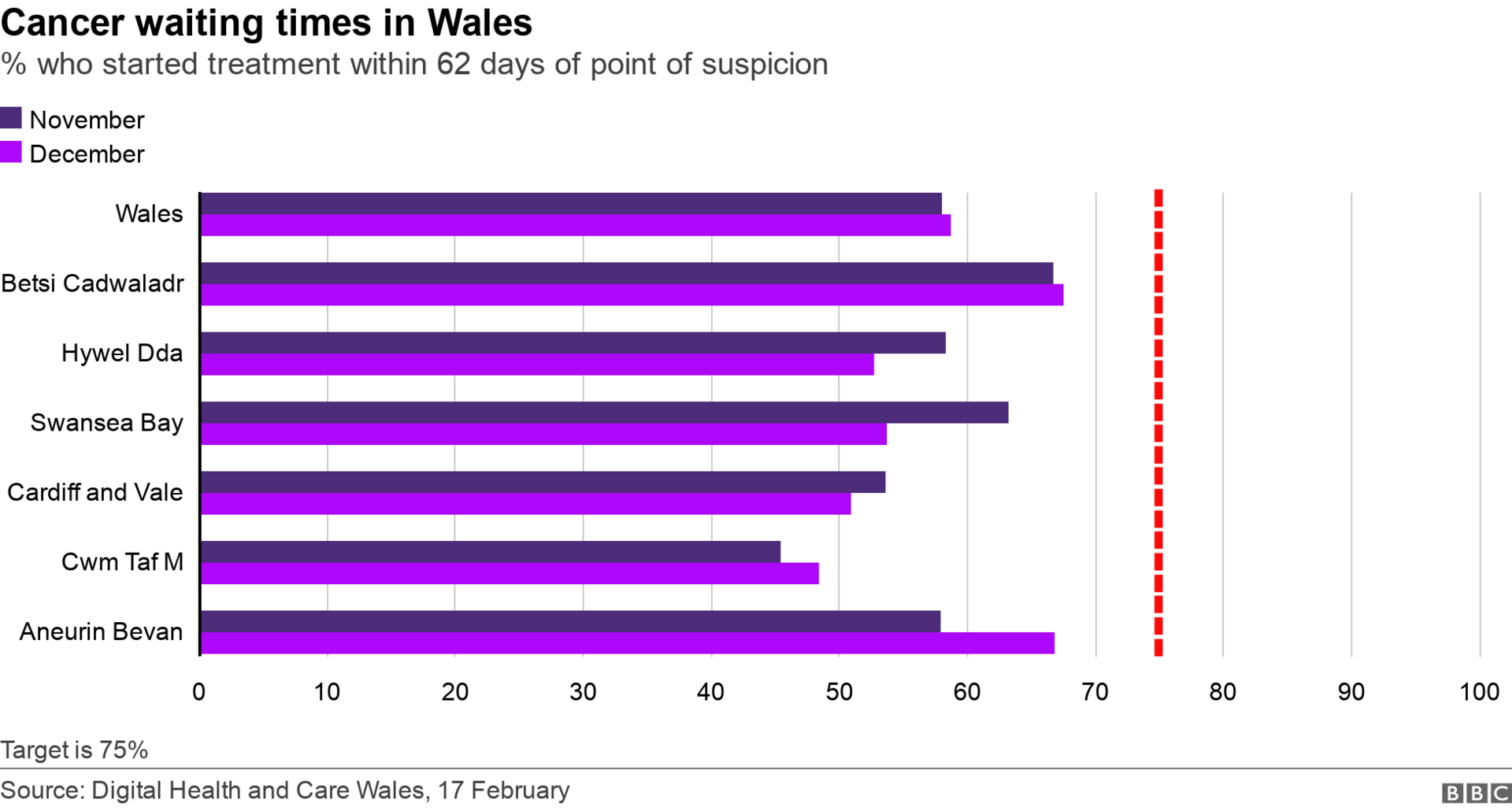
For cancer waiting times, 58.6% of people suspected of having cancer began treatment within 62 days. It's an improvement on last month but the target is 75%. There is also a difference between different health boards, with again less than half of patients in Cwm Taf Morgannwg starting cancer treatment within the target time.
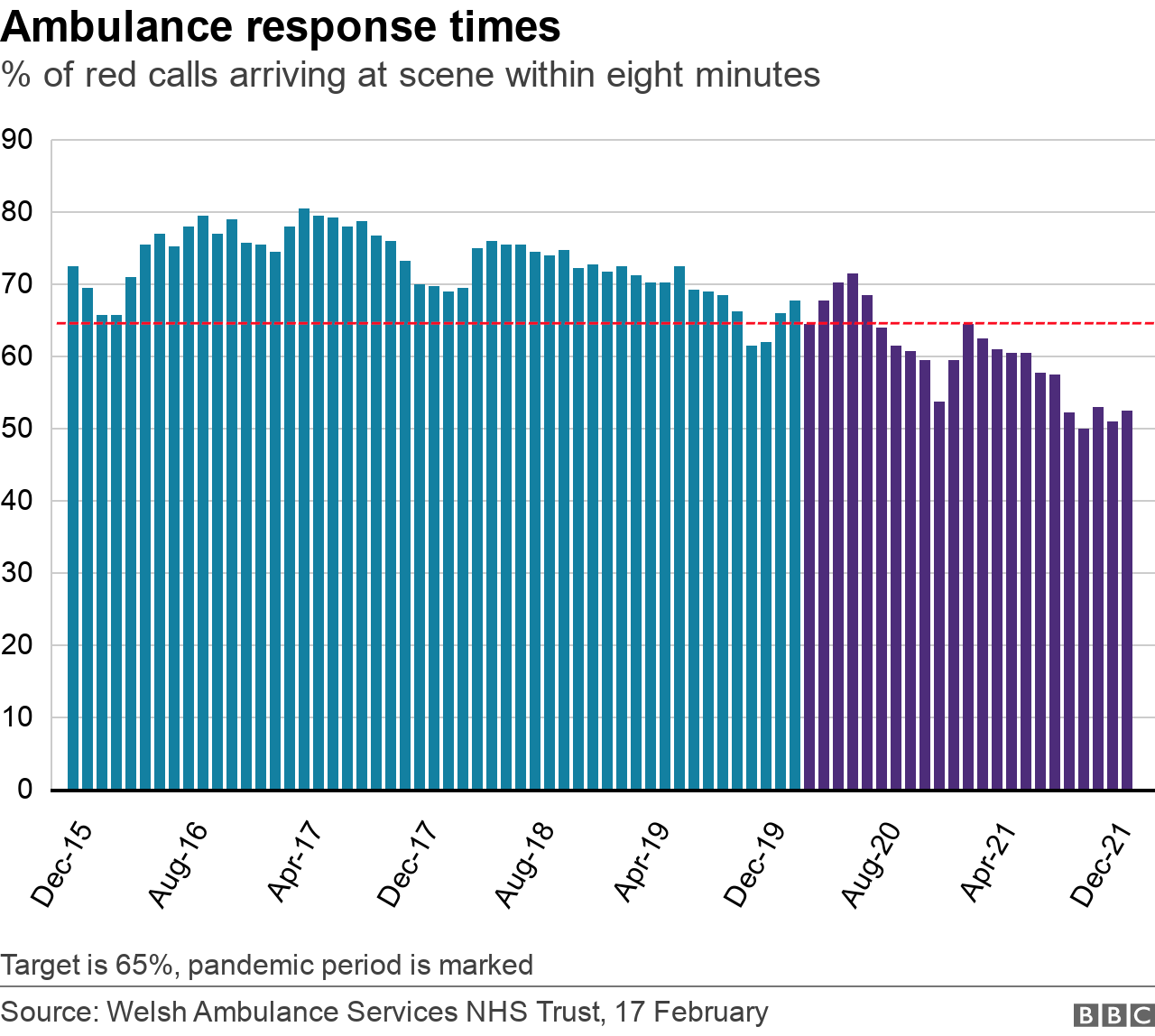
Figures showed response times for the Welsh Ambulance Service improved in January, compared to December, which was the second worst month on record. Figures show 52.5% of immediately life-threatening red calls received a response within eight minutes. The target is 65%.
The average (median) response time to these red calls was seven minutes and 39 seconds, 17 seconds faster than in December.

The number of patients being seen at A&E within the target time also improved on December, which had been the second worst on record.
Figures show 68.2% of patients were seen within four hours - the target set is 95%.
This dropped as low as 49.1% at Wrexham Maelor Hospital, and 50% at Ysbyty Glan Clwyd, Denbighshire, although both hospitals showed improvements.
The average time spent in emergency departments in January also fell to two hours and 52 minutes.
But numbers waiting more than 12 hours in A&E rose to their second highest on record in January… nearly 9,000 (8,998). That's 12% of all patients. The target is that no-one should wait that long.
Older patients (those aged 85 or above) generally spent between three hours and 30 minutes and five hours in emergency departments.
Emergency attendances were up by nearly a quarter than January 2021 - a peak in the pandemic - but are lower than the pre-pandemic period.
What is the reaction?
Susan Hill, vascular surgeon and acting director for Wales at The Royal College of Surgeons, said: "Waiting time figures are spiralling in Wales, illustrating the gravity and scale of the backlog.
"Patients waiting for treatment will continue to be disheartened and distressed at today's figures."
Miss Hill called for a recovery plan to be published urgently.
That was echoed by Plaid Cymru, which said the recovery plan could not wait until April.
"Undoubtedly, the pandemic has had a massive impact on the ability of our NHS to diagnose and treat patients - the waiting times now are beyond shocking but they weren't good enough before the pandemic," said health spokesman Rhun ap Iorwerth.
"Welsh government should be ready with a recovery plan now, just as they should have had a plan in place before the pandemic."
The Welsh Conservatives' health spokesperson Russell George said: "The treatment waiting list was already at a record high two years ago, the longest-ever pre-Covid A&E waits were in 2019, NHS beds have been cut year-on-year by a third of what they were when Labour entered power, and there are still thousands of staff vacancies to fill.
"Under Labour, business as usual would be failure as usual."
The NHS Confederation in Wales, which represents health boards, said despite small improvements it was "painfully aware" of the experience of those waiting longer than they should and more was being done to support them.
'Demanding'
Director Darren Hughes said NHS leaders expected a "significant uncovering of 'late presentations' emerging over the next two years, due to the impact Covid had on primary care, translating into further harm in the long run."
Health minister Eluned Morgan said to see an increase of only 0.2% in December was "a testament to the incredible work that the NHS carried out at an already pressurised time of the year".
The Welsh government thanked NHS Wales staff for their "heroic efforts" in keeping the waiting list rise to the lowest since the start of the pandemic.
"Demanding winter pressures, the Omicron wave and the need to support the vaccination programme continued to place considerable strain on the NHS in December 2021," said a spokesperson.
"These challenges led to the postponement of a number of appointments and planned treatments across Wales and some people were waiting longer for treatment than we would like."
- Published17 February 2022
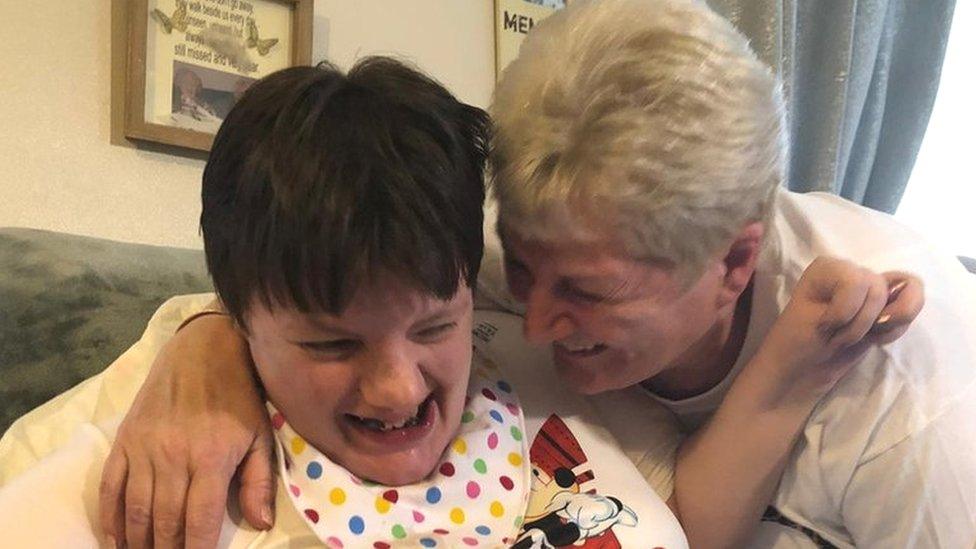
- Published20 January 2022

- Published20 January 2022
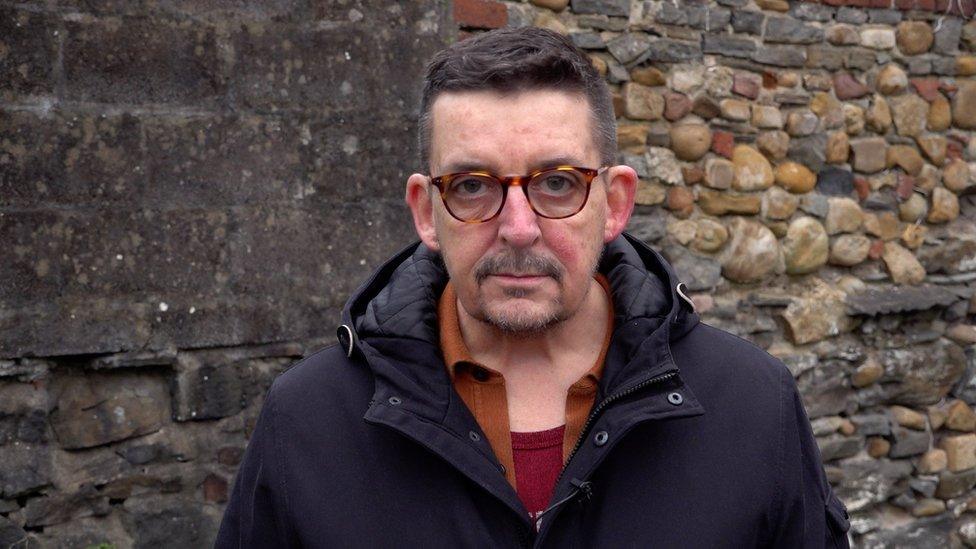
- Published23 December 2021
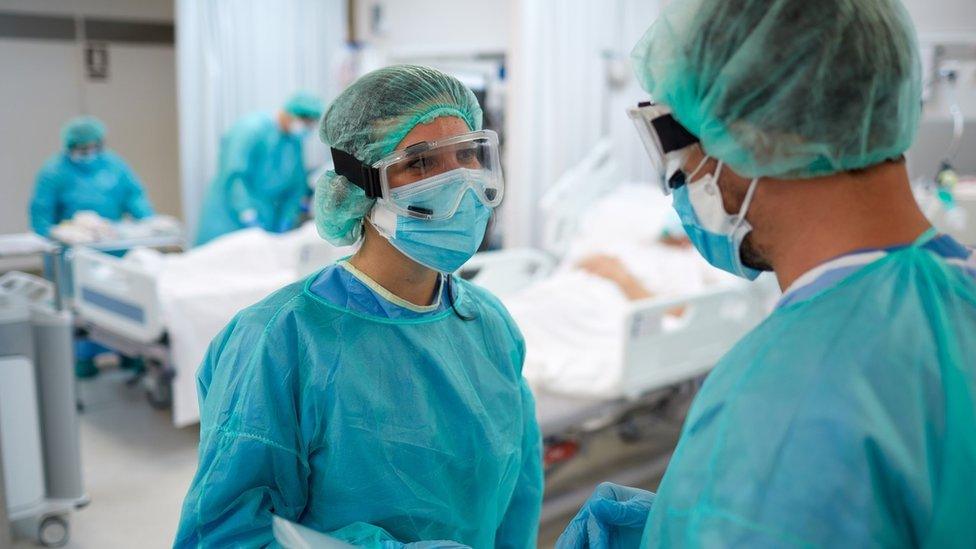
- Published23 December 2021
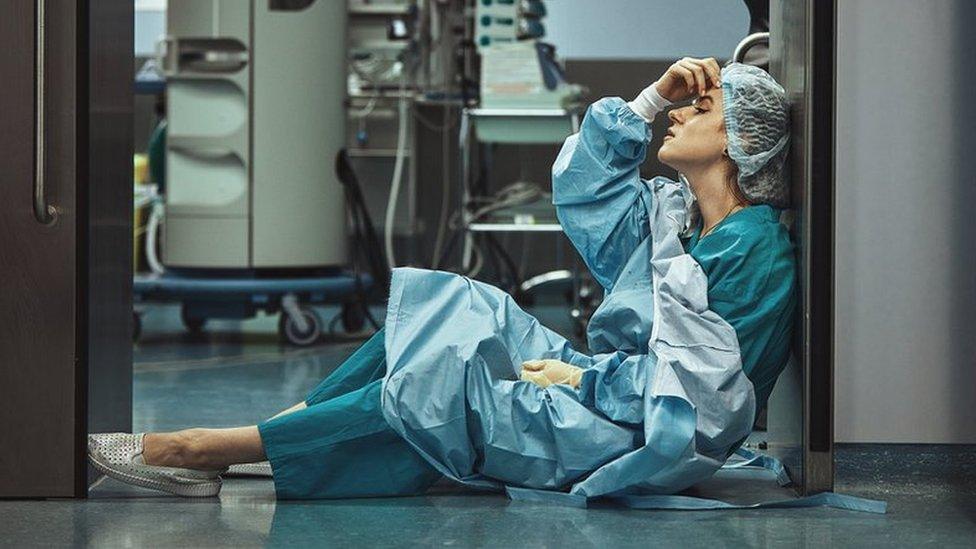
- Published18 November 2021
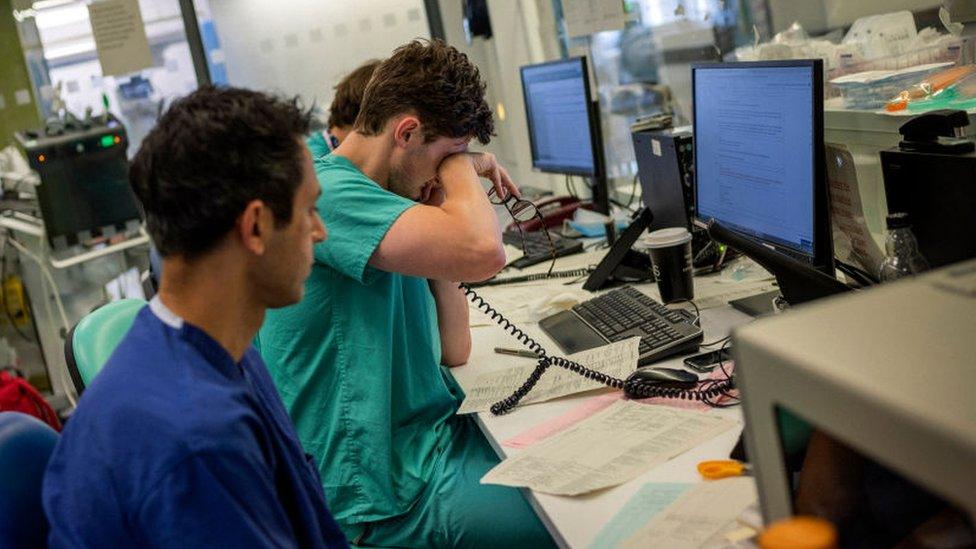
- Published19 August 2021
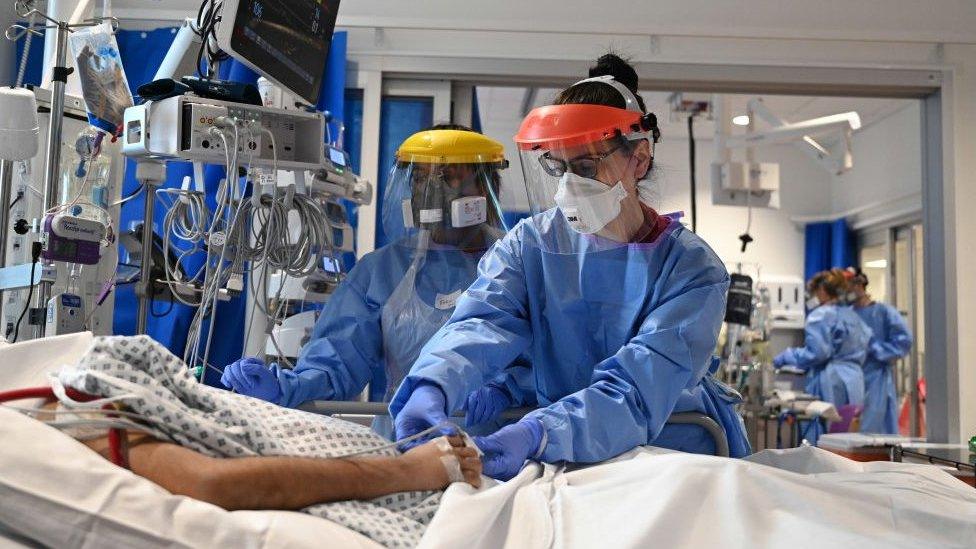
- Published20 December 2021

- Published22 July 2021

- Published18 February 2021
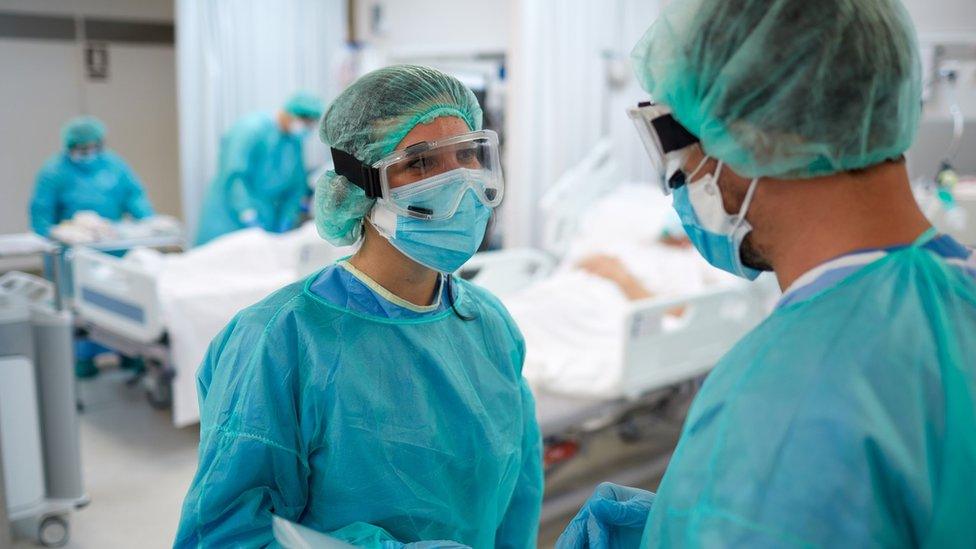
- Published17 June 2021
